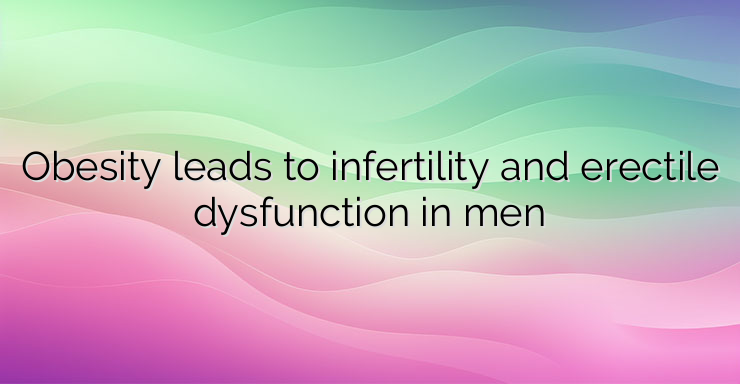Obesity has a multifaceted effect on male reproductive health. It has been found that patients with a high body mass index and waist circumference have a reduced volume of seminal fluid that is released during ejaculation, as well as oligozoospermia. The latter condition is characterized by a reduced number and concentration of spermatozoa in the composition of the seminal fluid. Increased accumulation of adipose tissue is associated with abnormalities in sperm morphology. Changes in the function of the male germ cells are also observed, which disrupts the development of the embryo after fertilization of the egg and lowers the chances of successful fertilization. Obesity in men is associated with reduced serum concentrations of testosterone, high values of estradiol – the female sex hormone, impaired spermatogenesis and erectile dysfunction. The latter condition is due to the atherogenic effects that are observed on the peripheral vessels. In addition, obesity is characterized by an increase in temperature in the testicles and a decreased level of inflammatory mediators. Under physiological conditions, spermatogenesis is controlled by the action of follicle-stimulating FSH and luteinizing hormone – LH on the testes. These hormones, in turn, are released as a result of the stimulating action of gonadotropin-releasing hormone, which is produced and secreted by the hypothalamus. In obese patients, decreased serum concentrations of testosterone and sex hormone-binding globulin – SHBG are observed. Infertility is more common in affected patients due to the increase in temperature in the testicles, which is the result of a sedentary lifestyle. This leads to an increase in the levels of female sex hormones – estrogens and disruption of the function of the hypothalamus-pituitary-gonadal axis. Adipose tissue produces adipokines, which can lead to severe forms of inflammation and oxidative stress in the male reproductive organs. These consequences lead to tissue damage in the testicles and epididymis. In obese patients, decreased sperm quality is observed. Their motility is impaired, as well as damage to the genetic material, the acrosome reaction and the concentration of spermatozoa in the composition of the seminal fluid. Visceral adipose tissue leads to changes in the hormonal balance, which causes chronic inflammation in the genitals and an increase in temperature in the scrotum, due to the accumulation of adipose tissue in this area. All this impairs sperm quality and increases the risk of male infertility. References: https://www.ncbi.nlm.nih.gov/pmc/articles/PMC7695350/


Leave a Reply